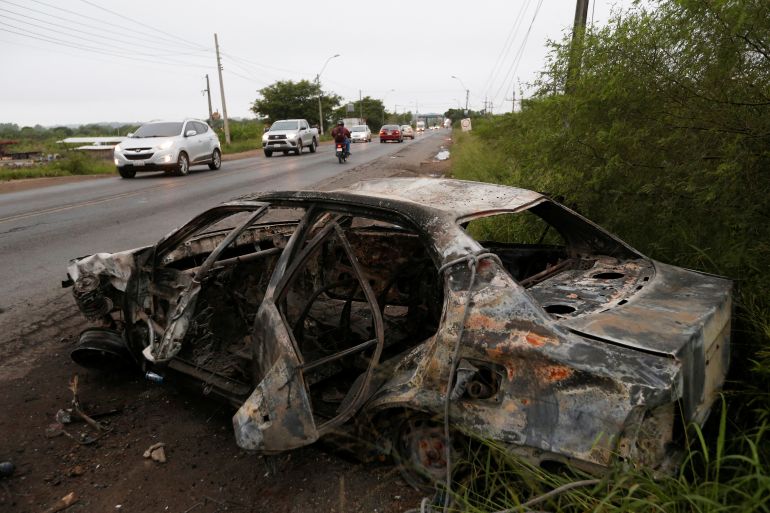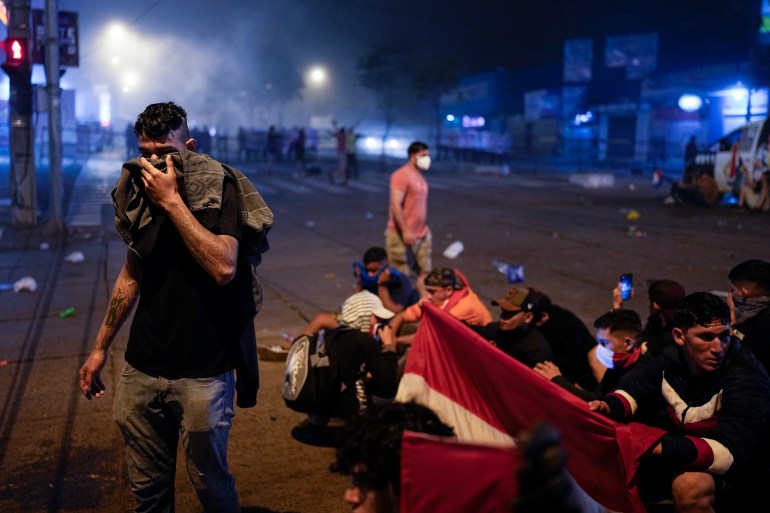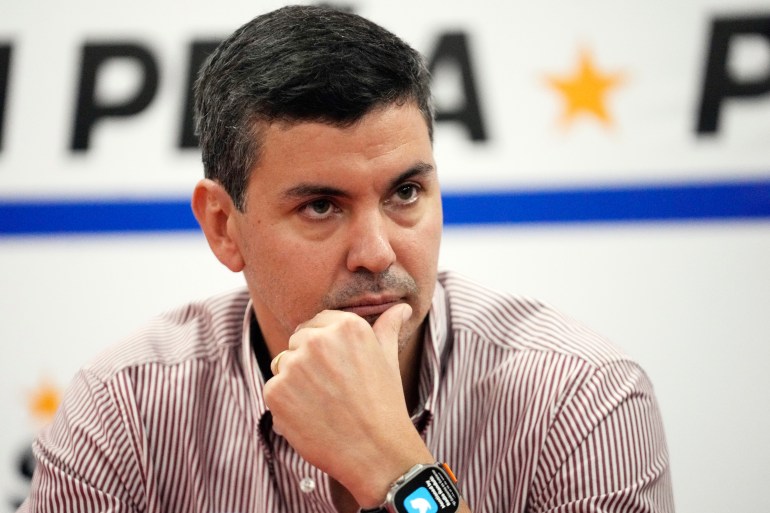Amid protests, authorities uphold legitimacy of Paraguay election
The Organization of American States, as well as Paraguay officials, have affirmed the legitimacy of Sunday’s vote.

An international body charged with overseeing democracy and human rights in the Americas has affirmed that there is “no reason to question the results” of Sunday’s presidential election in Paraguay, where protests have broken out in support of the third-place candidate.
The Organization of American States (OAS) issued a statement on Tuesday saying it “did not observe serious incidents” or “interruptions in the processing of sensitive electoral information”, nor did it find any deficiencies in the handling of election material.
Keep reading
list of 3 itemsUS accuses top Paraguay politicians of corruption, spurring probe
Taiwan in the hot seat during Paraguay presidential elections
Instead, it called “for all complaints and disagreements regarding the electoral process to be processed through institutional channels in accordance with the law and in a peaceful manner”.
The OAS statement came in the wake of protests in the capital of Asunción and elsewhere, after right-wing candidate Santiago Peña handily won the presidency on behalf of the long-ruling Colorado Party, securing nearly 43 percent of the vote.
His centre-left rival Efraín Alegre received 27.5 percent of the votes, followed by right-wing populist Paraguayo Cubas, with 23 percent.
Supporters of Cubas, however, took to the street to contest the election results, alleging fraud.

Outside the electoral court in Asunción, protesters lobbed rocks, and police responded with rubber bullets. Other demonstrators defaced billboards supporting Peña or burned tyres to block roadways. Most of the blockades, however, were removed by Tuesday morning.
Cubas himself posted on social media, sharing a photo of prominent figures in the Colorado Party and calling them “thieves”. He then cited a stretch of Paraguay’s constitution, calling on citizens to “resist” so-called “usurpers”, though he has not cited evidence or filed an official complaint of electoral fraud.
“We are not satisfied. The elections were stolen from us. It’s that simple,” Cubas’s wife, Senator-elect Yolanda Paredes, told reporters.
Alegre, the second-place finisher, also took to social media on Monday to call for a partial manual recount to verify the vote, as well as an independent international audit.
“We remain ATTENTIVE AND MOBILIZED,” Alegre wrote on Twitter. “The validity and legitimacy of the proclamation of the results depends on the adoption of these measures to ensure that they faithfully reflect the popular will.”

Peña is set to be sworn in on August 15. A 44-year-old economist, Peña will become Paraguay’s youngest president since before 1989, when a coup d’etat ended the 34-year rule of Alfredo Stroessner, leading to democratic reforms.
But his election continues a string of victories for the conservative Colorado Party, which has led Paraguay for much of the past 80 years. Peña is widely seen as a protégé of party leader Horacio Cartes, a businessman and former president who has faced United States sanctions for corruption.
In a Twitter post on Tuesday, Peña emphasised the need for a peaceful transition of power. “Our priority will be for this process to be harmonious and calm,” he wrote.
On Tuesday, officials in Paraguay reiterated that Sunday’s election was conducted accurately.
“There is no possibility of fraud,” electoral tribunal spokesman Carlos Ljubetic told reporters. “The results of the election are the expression of the citizenry, whether we like it or not.”